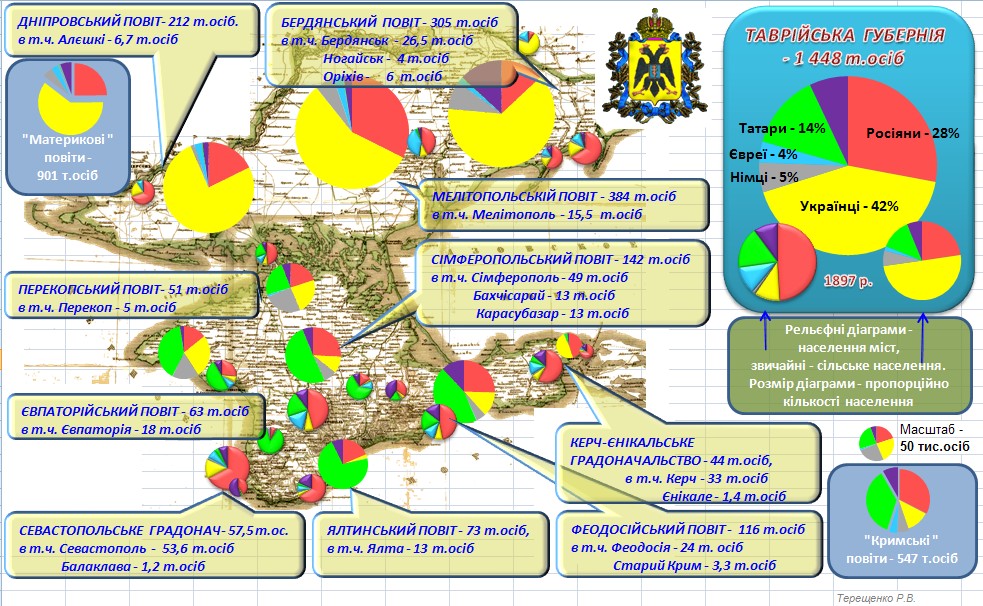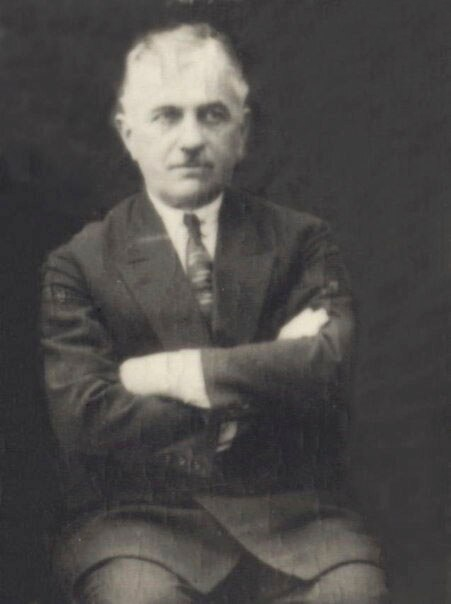|
Usein Bodaninsky
Üsein Abdurefi oğlu Bodaninskiy (russian: Усеи́н Абдрефи́евич Бодани́нский, translit=Usein Abdrefiyevich Bodaninsky; 1 December 1877 – 17 April 1938) was Crimean Tatars, Crimean Tatar historian, artist, art critic, and Ethnography, ethnographer, and the first director of the Bakhchisaray Palace Museum. Biography His surname is of Russian-language toponymic surname, toponymic derivation and means "from Bodana". "Üsein" is a variant of Hussein. He was born in Crimea, in the village Bodana of Simferopol ''uyezd'' (district), Taurida Governorate, Russian Empire, now Perovo (Simferopol District). In 1917 he was appointed director of Bakhchisaray Palace. Bodaninsky's brother died fighting for the Bolsheviks during the Russian civil war in 1920. In the mid 1920s he led a major trip in Crimea for the recovery and study of historic manuscripts, folklore, and architecture. In 1937, during the Great Purge, he was arrested in Tbilisi, accused of national ... [...More Info...] [...Related Items...] OR: [Wikipedia] [Google] [Baidu] |
Badana
Perovo (russian: Перово) or Perove ( uk, Перове) is a village in Simferopol Raion, Crimea. Before 1948 it was known under the Crimean Tatar language, Crimean Tatar name Badana. In Russian Empire it was also called Bodana. History An early mention of the settlement in Russian documents is in the 1784 list of Crimean ''kaymakamships'', according to which Bodan was part of the Aqmescit kaymakanship during the last days of the Crimean Khanate. Over time the settlement disappeared, and the modern settlement is considered to be established in 1929 when chicken farming sovkhoz "Bodana" was created by Simferopol. Officially, the settlement Bodana was recognized in 1932. In 1948 it was renamed to Perovo after the submariner Hero of the Soviet Union Ivan Perov. [...More Info...] [...Related Items...] OR: [Wikipedia] [Google] [Baidu] |
Taurida Governorate
The Taurida Governorate (russian: Тавріическая губернія, modern spelling , ; crh, script=Latn, Tavrida guberniyası, ) or the Government of Taurida, was a historical governorate of the Russian Empire. It included the Crimean Peninsula and the mainland between the lower Dnieper River and the coasts of the Black Sea and Sea of Azov. It was formed after the Taurida Oblast was abolished in 1802 in the course of Paul I's administrative reform of the southwestern territories that had been annexed from the Crimean Khanate. The governorate's centre was the city of Simferopol. The province was named after the ancient Greek name of Crimea - Taurida. Today the territory of the governorate is part of the Crimea, Kherson, and Zaporizhzhia regions of Ukraine. Administrative divisions The governorate comprised three counties (uyezds) on the mainland: * Berdyansky Uyezd, centred in Berdyansk * Dneprovsky Uyezd, Oleshky * Melitopolsky Uyezd, Melitopol and five counties pl ... [...More Info...] [...Related Items...] OR: [Wikipedia] [Google] [Baidu] |
1877 Births
Events January–March * January 1 – Queen Victoria is proclaimed ''Empress of India'' by the ''Royal Titles Act 1876'', introduced by Benjamin Disraeli, the Prime Minister of the United Kingdom . * January 8 – Great Sioux War of 1876 – Battle of Wolf Mountain: Crazy Horse and his warriors fight their last battle with the United States Cavalry in Montana. * January 20 – The Conference of Constantinople ends, with Ottoman Turkey rejecting proposals of internal reform and Balkan provisions. * January 29 – The Satsuma Rebellion, a revolt of disaffected samurai in Japan, breaks out against the new imperial government; it lasts until September, when it is crushed by a professionally led army of draftees. * February 17 – Major General Charles George Gordon of the British Army is appointed Governor-General of the Sudan. * March – ''The Nineteenth Century (periodical), The Nineteenth Century'' magazine is founded in London. * Marc ... [...More Info...] [...Related Items...] OR: [Wikipedia] [Google] [Baidu] |
Server Trupçu
Server Qurtseit Trupçu ( – 17 April 1938) was a Soviet Crimean Tatar politician who served as Secretary of the Crimean Regional Committee of the All-Union Communist Party (Bolshevik) and a NKVD troika for a few months in 1937 before he was arrested and executed as part of the Great Purge. Biography Server Qurtseit Trupçu was born around 1908, in the Crimean village of Dereköy (now ). From 1919 to 1924, he worked as a labourer, including as a cattle herder and orphanage worker around the Yalta area. In 1924, he joined the Komsomol. From 1926 to 1927, Trupçu worked as an instructor and organiser of the Komsomol district committee in Yalta. In 1928, he joined the All-Union Communist Party (Bolshevik). Afterwards, he continued to work as an instructor and organiser of the Komsomol, but moved to the cities of Sevastopol and Simferopol. In 1931, Trupçu was placed in charge of the Personnel Department of the Crimean Regional Committee. From 1932 to 1934, he studied at the ... [...More Info...] [...Related Items...] OR: [Wikipedia] [Google] [Baidu] |
İlyas Tarhan
İlyas Ümer oğlu Tarhan (russian: Илья́с Уме́рович Тарха́н, translit=Ilyas Umerovich Tarkhan; 1900 – 17 April 1938) was a Soviet Crimean Tatar journalist, playwright, and politician who served as Chairman of the Central Executive Committee of the Crimean ASSR from 1931 to 1937. He was also an editor of the ''Yaş Quvet'' newspaper and a member of the Union of Soviet Writers. Arrested during the Great Purge and charged with involvement in a Pan-Turkic counterrevolutionary organisation, he was executed in 1937 and rehabilitated in 1956. Early life and career İlyas Ümer oğlu Tarhan was born in 1900 in the village of Körbekül (), under the Russian Empire. His father was a landless farmer. From 1913 to 1917, he lived in the city of Kazan, studying at a Tatar school in the city. He graduated from the Zincirli Madrasa, and joined the Russian Communist Party (Bolshevik) in 1919. During the Russian Civil War, he was involved in partisan activities again ... [...More Info...] [...Related Items...] OR: [Wikipedia] [Google] [Baidu] |
Abdulla Latif-zade
Abdulla Latif-zade ( crh, Abdulla Abil oğlu Lâtif-zade, russian: Абдулла Абиль огълу Лятиф-заде; 26 August 1890 17 April 1938) was a Crimean Tatar literary critic, poet, writer, and translator who was executed during the purge of Crimean Tatar intellectuals in the Stalin era. Born to a family of teachers in 1890, he attended a madrasah in Crimea and later studied in Istanbul before becoming a teacher himself. He taught in Yevpatoria and Simferopol. In 1917 he was elected as a delegate to the Qurultay of the Crimean Tatar People, and took part in the transliteration of the Crimean Tatar language to the Latin alphabet. After graduating from the State Academy of Art Studies in 1934 he taught Western European Literature at the Crimean Pedagogical Institute until he was dismissed for being "an ardent nationalist" on 21 March 1937 - his use on non-Russian loanwords having made some of his students uncomfortable. He was then arrested on 28 April that year on ... [...More Info...] [...Related Items...] OR: [Wikipedia] [Google] [Baidu] |
Osman Aqçoqraqlı
Osman Nuri-Asan oğlu Aqçoqraqlı ( – 17 April 1938), also written as Aqchoqraqli or Akchokrakli, was a Crimean Tatar writer, journalist, historian, archaeologist, ethnographer, and teacher. Early life Osman Nuri-Asan oğlu Aqçoqraqlı was born in the city of Bakhchysarai into the family of an Arabic script calligrapher on 15 January 1879. He received his primary education at the Zincirli Madrasa, before later studying at the Daoud Pasha gymnasium in Istanbul from 1894 to 1896. In 1908, he moved to Cairo and began taking private lessons on eastern history, Arabic literature, and archaeology from Al-Azhar University. When questioned by universities, he would modestly refer to his education credentials as being incomplete secondary education. However, this did not prevent universities from hiring him. Career Aqçoqraqlı began his career in Saint Petersburg, teaching calligraphy at the of Saint Petersburg State University. He also participated in the decoration of mosques ... [...More Info...] [...Related Items...] OR: [Wikipedia] [Google] [Baidu] |
Asan Sabri Ayvazov
Asan Sabri Ayvazov ( – 17 April 1938) was a Crimean Tatar politician, journalist, writer, educator, and pedagogue in the Russian Empire. Active from the early 1890s until the late 1920s, Ayvazov was a preeminent figure among the Crimean Tatar intelligentsia, and one of the leaders of the Crimean Tatar nationalist movement. Early life and career Asan Sabri Ayvazov was born on 18 May 1878 into a poor peasant family in the city of Alupka. In 1889, after graduating from elementary school, he was sent to live in Istanbul with his relatives. Here, he studied at the Istanbul Pedagogical Institute from 1892 to 1896. At this time, he was already active in the Crimean Tatar nationalist movement, publishing articles for Ismail Gasprinsky's Terciman newspaper in Istanbul and Baku. In 1898, however, Ayvazov was arrested by the Ottoman police. When they discovered he was a citizen of the Russian Empire, he was deported back to Crimea. Mektebe-usul-jedid movement Once he arrived i ... [...More Info...] [...Related Items...] OR: [Wikipedia] [Google] [Baidu] |

